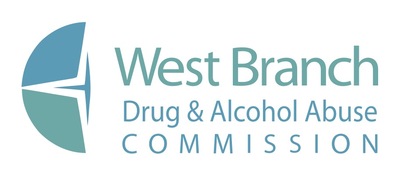Drugs and Alcohol
Drug Addiction
People experiment with drugs for many different reasons. Many first try drugs out of curiosity, to have a good time, because friends are doing it, or in an effort to improve athletic performance or ease another problem, such as stress, anxiety, or depression. Use doesn’t automatically lead to abuse, and there is no specific level at which drug use moves from casual to problematic. It varies by individual. Drug abuse and addiction is less about the amount of substance consumed or the frequency, and more to do with the consequences of drug use. No matter how often or how little you’re consuming, if your drug use is causing problems in your life-at work, school, home, or in your relationships-you likely have a drug abuse or addiction problem. * Source: Reprinted with permission from the National Council on Alcoholism and Drug Dependence, Inc. (NCADD) www.ncadd.org
Many people don’t understand why or how other people become addicted to drugs. They may mistakenly think that those who use drugs lack moral principles or willpower and that they could stop their drug use simply by choosing to. In reality, drug addiction is a complex disease, and quitting usually takes more than good intentions or a strong will. Drugs change the brain in ways that make quitting hard, even for those who want to. Fortunately, researchers know more than ever about how drugs affect the brain and have found treatments that can help people recover from drug addiction and lead productive lives. *Source: National Institute on Drug Abuse; National Institute of Health; U.S. Department of Health and Human Services. For the Full article please go to: https://www.drugabuse.gov/publications/drugfacts/understanding-drug-use-addiction
Alcohol Addiction
- Alcohol is the most commonly used addictive substance in the United States: 17.6 million people, or one in every 12 adults, suffer from alcohol abuse or dependence along with several million more who engage in risky, binge drinking patterns that could lead to alcohol problems.
- More than half of all adults have a family history of alcoholism or problem drinking, and more than 7 million children live in a household where at least one parent is dependent on or has abused alcohol.
- Alcohol abuse and alcoholism can affect all aspects of a person’s life. Long-term alcohol use can cause serious health complications, can damage emotional stability, finances, career, and impact one’s family, friends and community.
Alcoholism has little to do with what kind of alcohol one drinks, how long one has been drinking, or even exactly how much alcohol one consumes. But it has a great deal to do with a person’s uncontrollable need for alcohol. Most alcoholics can’t just “use a little willpower” to stop drinking. The alcoholic is frequently in the grip of a powerful craving for alcohol, a need that can feel as strong as the need for food or water. While some people are able to recover without help, the majority of alcoholics need outside assistance to recover from their disease. Yet, with support and treatment, many are able to stop drinking and reclaim their lives.
* Source: Reprinted with permission from the National Council on Alcoholism and Drug Dependence, Inc. (NCADD) www.ncadd.org
You are not alone.
If you or a loved one is struggling with addiction please call our office for help. The Commission staff will assist you in navigating the beginning steps in your path to recovery.
